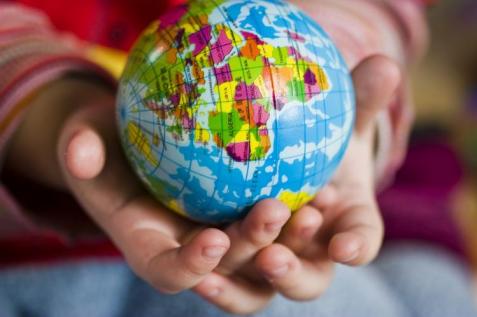Future Problem Solving New Zealand
This highly regarded and well-researched international educational program develops creative, critical, and caring thinking skills in students years 1–13. Students grapple with global and community issues, identify underlying problems, and create positive solutions to those issues.
LEARNZ virtual field trips for NZ schools
LEARNZ is a programme of free virtual field trips, taking students to remote places all over New Zealand, Antarctica, and beyond. Field trips have online video and audio feeds, activities, and assist NZ teachers to provide online experiences that are interesting, relevant, real, flexible, safe, and 21st century.
Worldometers
Find real time world statistics.
Sustainability
Education for sustainability
This resource helps teachers to engage students in learning about sustainability and to encourage them to act sustainably and contribute to New Zealand’s well-being. It makes connections between the learning areas, vision, principles, values, and key competencies of The New Zealand Curriculum and Te Marautanga o Aotearoa.
Enviroschools
Enviroschools is an environmental action based programme where young people are empowered to design and lead sustainability projects in their schools, neighbourhoods and country.
Pūtātara – a call to action
Incorporating sustainability and global citizenship across the curriculum in Aotearoa New Zealand. This resource supports schools and teachers to develop learning opportunities that are place-based, inquiry-led, and focused on participation for change.
Citizenship
Understanding New Zealand's Constitution
This set of teaching resources was prepared for the recent Constitution Conversation, and include facts, quizzes, conversation cards, and information about the topics under consideration. It is envisaged that the teaching and learning can be integrated into current classroom programmes.
BCUSS: Belonging and Participating in Society
This resource examines the concepts of belonging and participating in society. It considers why these concepts are important and explores ways to develop understandings about them through teaching and learning in social studies.
MYD: Youth Parliament
Youth Parliament is an opportunity for young New Zealanders to influence government decision-making as active citizens and have their views heard by key decision-makers and the public.
Social Sciences Online: Tax education and citizenship
The theme of citizenship can be embedded within a wide range of learning contexts, including taxation. This online resource has been designed as two units, using the social inquiry approach, for level 4 (year 7/8) and 5 (year 9/10) of The New Zealand Curriculum.
Enterprise
Education for Enterprise
The Education for Enterprise community provides information and resources that will help students develop the values and competencies they will need to participate and contribute locally and globally and meet the demands of a rapidly changing world.
BCUSS: Taking part in Economic Communities
This book is about developing conceptual understandings in the social sciences and providing ways to develop students’ financial literacy in the context of a social sciences learning programme.
NZ Senior Secondary Curriculum Guide: Business studies
Business studies sits at one end of the education for enterprise continuum. The guide includes useful information for schools designing effective programmes for Māori students of business studies, who have a unique cultural advantage in this learning area, and for all students who are using a Māori business as a case study.
Young Enterprise
Young Enterprise offers a range of enterprise programmes and financial literacy resources that can be used by teachers throughout New Zealand.
Globalisation
BCUSS: Being Part of Global Communities
This resource examines the concepts being part of global communities and globalisation. It considers why these concepts are important and explores ways to develop understandings about them through teaching and learning in social studies.
Edutopia: Global competence
Teaching young learners to take action for worldwide impact.
ASIA:NZ – Education
Information, resources, and professional development opportunities to help school leaders develop students with the skills and knowledge they’ll need to embrace future prospects in Asia.
Asia Society
Global competence is a crucial upgrade if our education system is to prepare the next generation for the knowledge economy.





